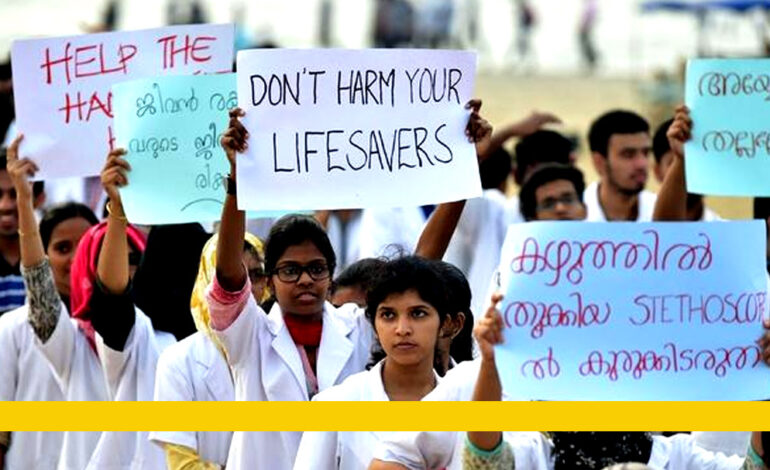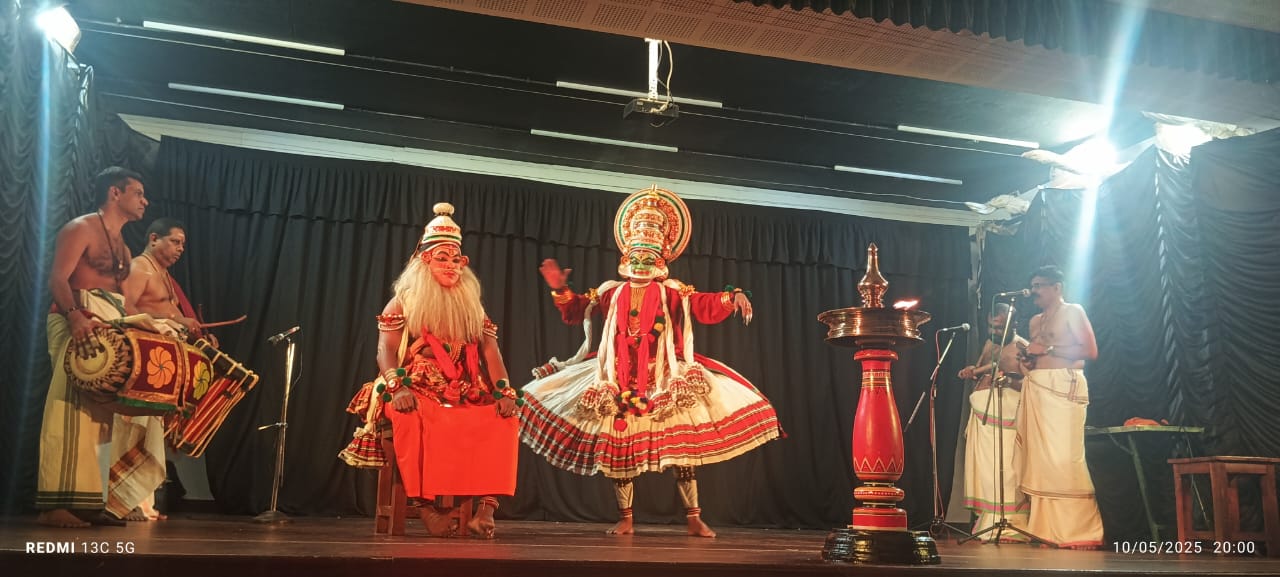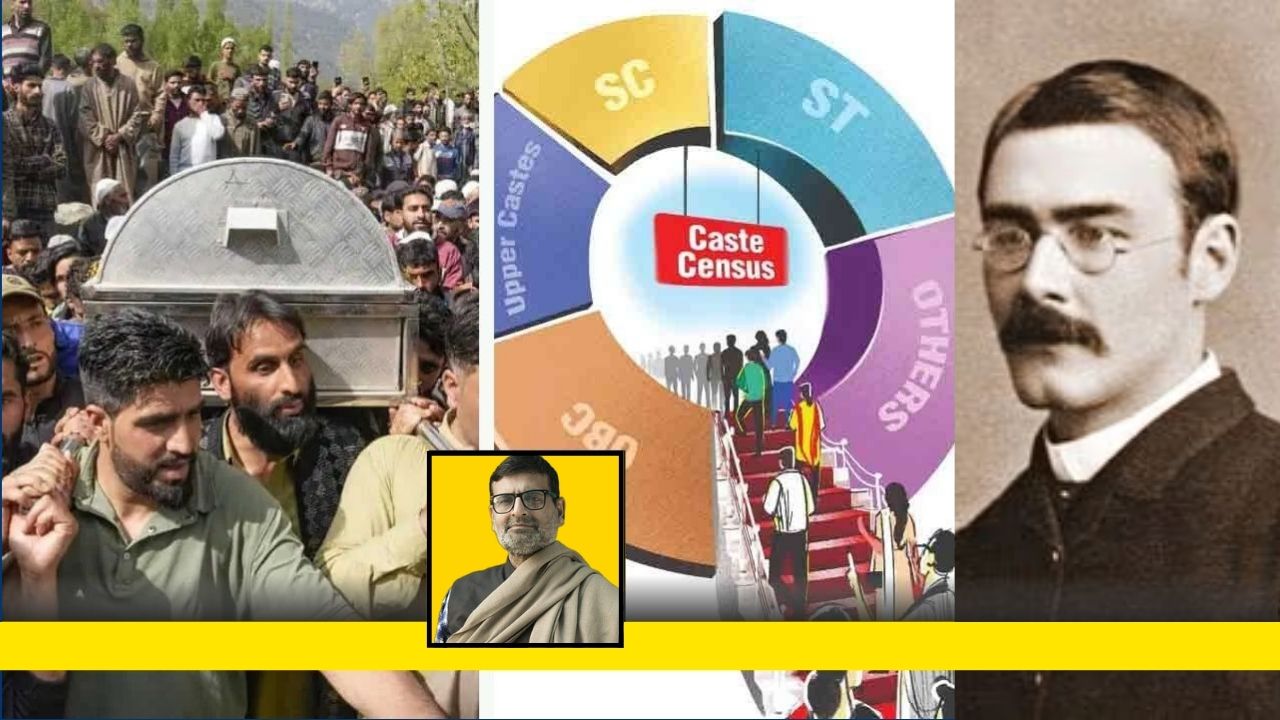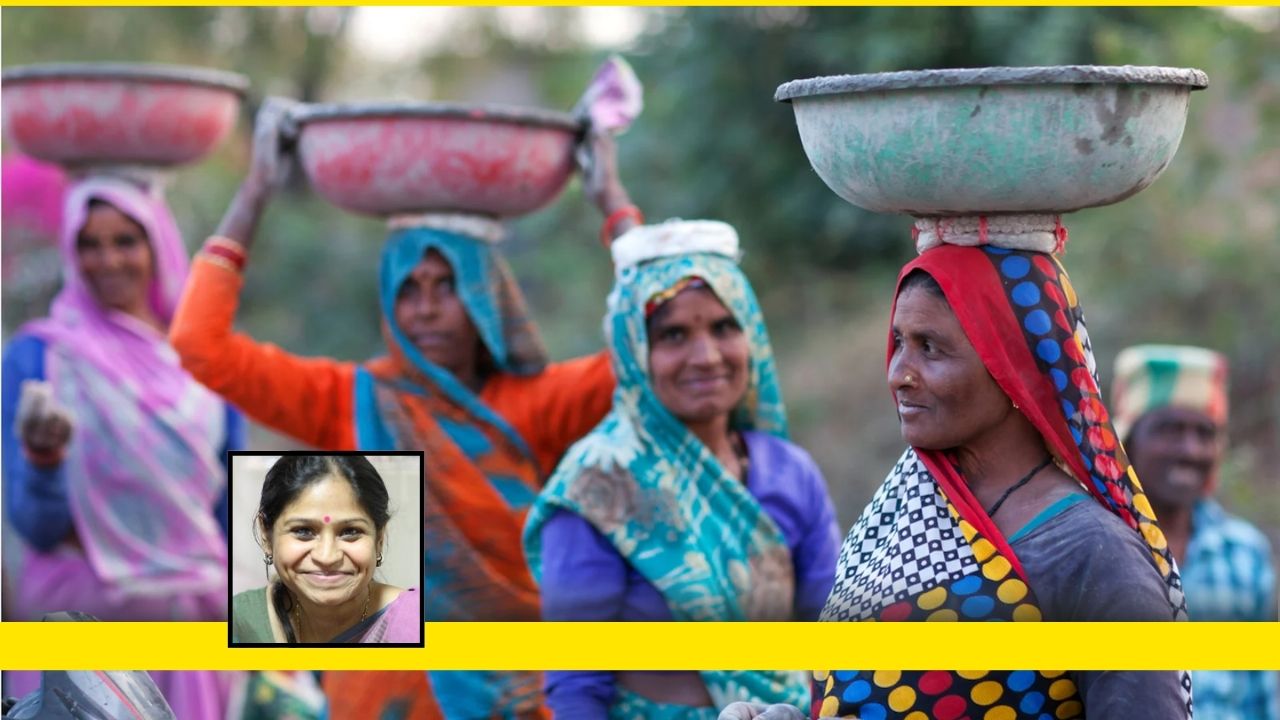
“Any incident in which an employee is abused, threatened or assaulted in circumstances relating to their work is unacceptable and not tolerated. This includes the serious or persistent use of verbal abuse, aggressive tone and/or language and swearing/foul language.”
This signage covering every other wall in a local NHS hospital in the United Kingdom came as a pleasant surprise for a junior doctor like me who hailed from a country where abuse was the norm.
Over the years the poor practice of medicine in India, the constant abuse from patients and family, the poor pay for the inhumane hours, the insane hierarchy rules, and the abuse from corporate management were some of the reasons which prompted us to leave to the UK.
The system here is so different from what we practise in India that it definitely gave me some culture shock.
Before ensuing employment, each employee is educated in detail regarding safety measures and protocols. There are entry portals for each ward which can be accessed only by ID cards or authorisation by staff.
There are guards who actually look like they mean business with proper training and necessary equipment in case of an emergency.
But most of all there is a proper protocol (CODE GREY) placed for the safety of healthcare personnel following recurrent government funded audits that take into consideration every incident seriously, and make necessary plans which are later reassessed by reaudits.
But most importantly respect starts in the house in the most gentle and respectful way in which junior doctors are treated by even the most senior doctors. Their behaviour sets an example for how the patients regard us.
I’m sure we all have the nice little memory of being treated as an imbecile during ward rounds for a bit of an ego play.
3 years ago, it was during a busy night shift at the Government General Hospital (Kozhikode Beach Hospital) that I faced my first significant abuse from a patient.
A middle aged man who had come with a trivial rash of a month’s duration waved his OP sheet at me at the busy casualty setting.
With a sigh of indignation, I calmly reprimanded him saying, “Chetta (brother), can you read the board behind me that advises people that trivial cases should be consulted at the OPD? There might be more significant cases waiting in the line that might reach us late if we spend time treating non-emergency cases.”
Before I knew it, he had balled up the paper and thrown it at my face, pushed back his chair loudly while yelling, “If you can’t treat people, why don’t you go sit at home? It’s with our tax money, you people are learning.”
Hot with embarrassment and aghast at what had just unfolded I watched in dumb shock.
The entire Casualty which was teeming with people quietened and the consultant doctor who sat at the head of the table just mildly shook his head at me asking me to not react.
Only my racing heart beat and echoed in my ears seemed to have witnessed the spectacle and reacted appropriately.
After all that’s what we are taught from the start of medicine.
Empathise, be kind and move on.
When I came home with a heavy heart to discuss this with my husband, he told me not to take it to my heart and recalled a similar story at Calicut medical college where he was shoved and yelled at by a bystander of a fracture case because he did not attend to the case fast enough.
My husband was dealing with a dying man but who cares?!
The ‘letting go’ of passive aggressive comments of how we loot patients, sometimes even from close family, the recurrent verbal abuse and direction of anger at doctors for delayed treatments while it is the failing infrastructure, suboptimal funding and poor hiring that is to blame, the indignation towards doctors for the bills placed by the hospital management and even physical assaults for something as logical as denying access to the ICU has all finally culminated in this, a death.
A death so avoidable.
Dr Vandana Das, a mere 22 year old girl was killed at Kottarakara Taluk Hospital due to the absence of proper protocol in dealing with a potentially combative person.
Combative people are not new to this state yet there weren’t any policies or protocols in place but rather the government chose to give a primary comment of her cause of death as her being ‘inexperienced’.
She was a mere green horn house surgeon obviously frozen in the face of brandished surgical scissors because her expertise was limited to caring and healing and not to pull out a gun from apron pockets or swish the stethoscope and catch the assailant in the eye.
The more ‘experienced’ government with their ‘should have been there’ policies, the hospital management with their ‘should have been there’ security services and the law enforcement with their ‘should have been there’ instincts and training, failed her.
All we can hope for now is proper law enforcement and alteration of policies from the Kerala Health Ministry pertaining to all such cases.
Patients under substance influence above a certain degree shouldn’t be brought into the casualty without taking proper measures or should be allotted a different treatment room anticipating an episode. The escorting police personnel should be given proper training regarding identification of signs of mental instability, potential combative behaviour and how to tackle them successfully.
It’s only with the team efforts from the law enforcing agencies, health ministry and hospital management that such a protocol can be placed for the safe practice for doctors.
And senior doctors, with the utmost respect from our hearts, we know you mean well but please treat us with respect in front of patients for they are watching every move; possibly imbibing on unsaid opinions on how to treat us junior doctors.
We want to help people, we do. But not at the cost of giving our own.
Or Kerala is just going to lose their brightest minds to safer countries.
Click here to read this article in Malayalam.











Intolerance has gone to it’s peak in every walk of life…need to be looked into it without any further delay… first people to try changing their own attitude and parallelly govt to implement policies, practices to prevent these kind of abuses in future
I invite health departments of all governments to read this article and imbibe its message . Will do the country a lot of good .
Well said! Doctors begin their journey with open hearts, ready to serve and give their best. However, it is the constant mental and physical abuse from “well-meaning” people that forces them to close their hearts and think about themselves first.
This issue is not just black and white. It is not just one issue. It’s rather than fatal culmination of a lot of other issues.
When any service is capitalized, it loses its human element. When schools and hospitals became a business rather than a service institution, it lost a lot of compassion. When hospital administration cares about bucks rather than the patients and families that flow in, it becomes hard for society to heal from being denied care and cure they deserved due to their financial circumstances. Cue enter the allegations (mostly true) that healthcare industry is just a profit making business, and they don’t care about lives. Young impressionable doctors who enter this world to make a difference are quickly taught the capitalist ways. Their dreams of service prematurely become fantasies. Those who deny are quickly pushed aside, ridiculed, and given the most toughest patients to deal with. They are forced to give up and become what they feared. Movies based around healthcare industries show a stark reality of the abuse and unethical practices. But the hero always wins and the practices are squashed. However, that is a rare and often unpractical occurrence. When people start believing that doctors are the villains, this causes them to act “heroically” where the villain is vanquished. A form of vigilantism. A blatant disregard of human life.
Change needs to start from the root-level, and while I do not claim to have any experience nor expertise in the healthcare industry, I do know that the government can play a huge role in this – enforce laws on abuse, having government audits, crackdown on those who give and receive bribes (commission, gifts), setting a cap on price of healthcare services, levying charges on hospitals who want to increase their prices to cater to the upper class – are just some of them. I am sure @Shabana and the other capable doctors can suggest more. Ultimately, the aim is safety of both doctor and patient.